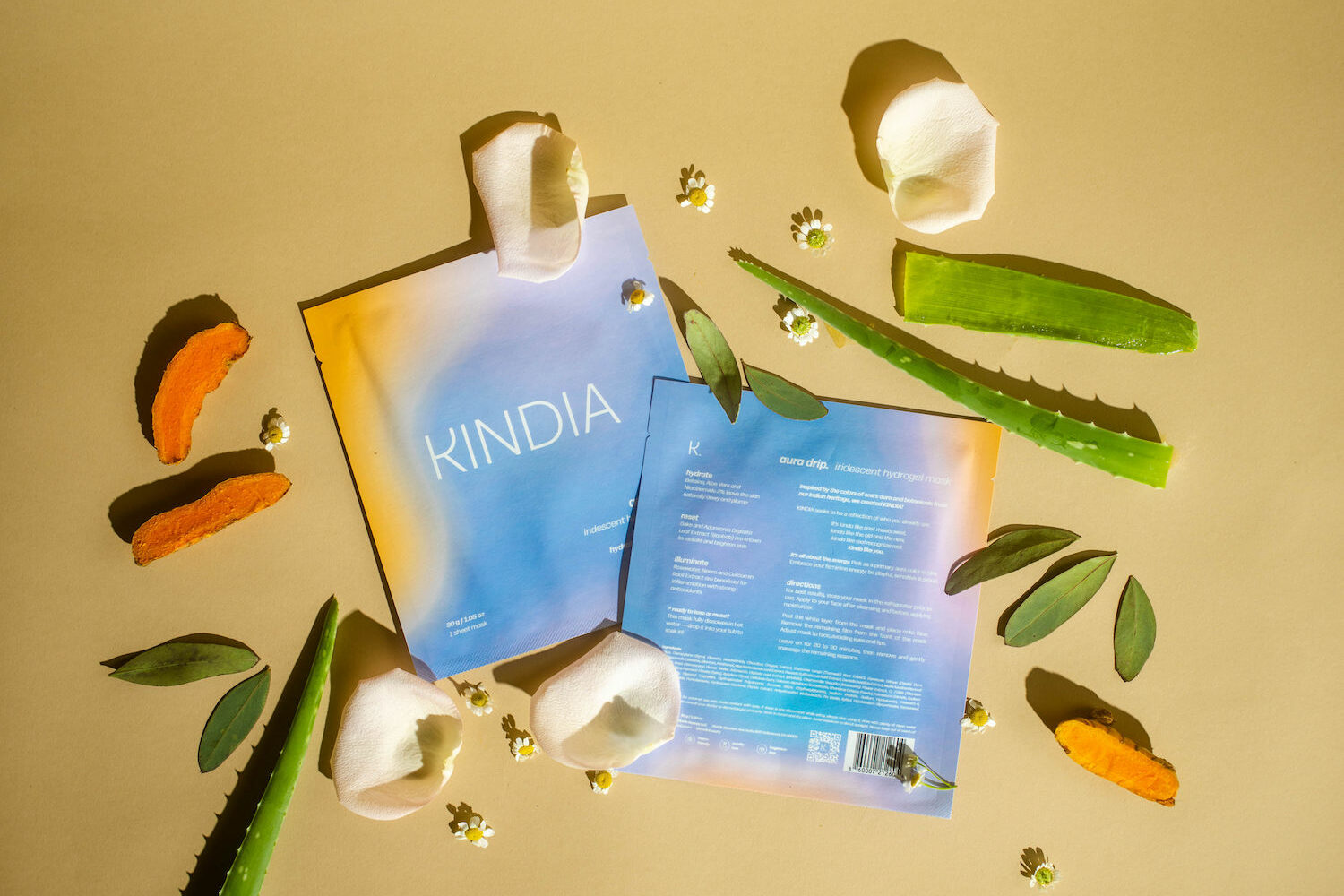
Ex-Casper Influencer Marketing Head Launches Face Mask Brand Kindia To Encourage People To Drop Their Masks
Straddling Kenyan and Indian heritage, fitting in hasn’t been easy for Dharni Patel.
“I’ve struggled to feel comfortable and beautiful in my own skin, and various factors played a role in that: my upbringing, advertising that I saw when I was growing up, colorism,” she says. “I grew up trying to do everything to fit in and make everyone happy and mask behind different personalities and styles. I later realized that this was kind of a disservice to myself and, frankly, quite exhausting.”
Patel launched the brand Kindia Beauty, a portmanteau of Kenya and India, last month as a way to lift up people like herself struggling with self-acceptance. She says, “We deserve to be different, and we deserve to feel wanted, and we deserve to shine through our masked personalities and celebrate who we are as we are.”
Kindia has two hydrogel face masks—Aura Bounce and Aura Drip—priced at $9 each for a single mask and $40 for a five-pack. Masks were Patel’s first foray into skincare. When she was a kid, her mom would DIY them using ingredients like turmeric, haldi, rosewater, neem and chickpea flour. “She hardly ever used Western products,” recalls Patel.
Some of the ingredients she became familiar with in her youth are in Kindia’s formulations along with actives like niacinamide and bakuchiol. Patel says, “I thought it could be cool to create this iridescent mask that has inspiration from my heritage and what my mom would use along with bonding supplements, too. It’s iridescent, so you’re allowing yourself to shine through as a metaphor of who you are, but still having this layer of aura.”
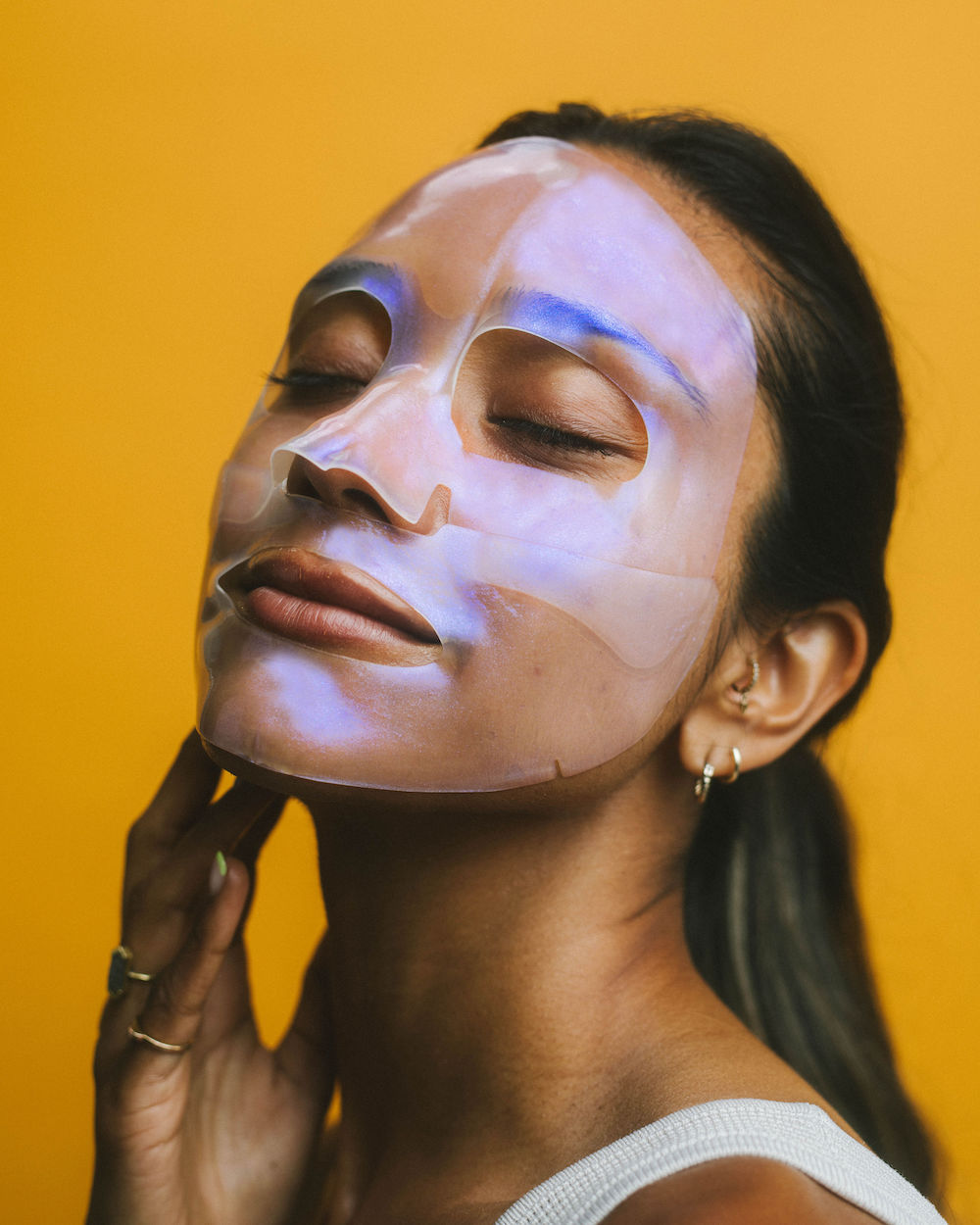
It took Patel two and a half years to ideate and build Kindia. Clinical and stability testing were particularly time-consuming aspects of the development. The brand’s masks are produced at a manufacturing facility in Korea and the testing was done there.
“When I think of any type of mask—sheet, hydrogel, biocellulose—Korea comes first to mind,” says Patel. “They are one of the best, and it made sense to source there. If I was going to get a mask made, I wanted it to be made in a country where the standards and bar are set high.”
Kindia aspires to be as sustainable and ethical as possible. Its masks are biodegradable and have no plastic, including glitter with microplastics. Patel didn’t put mica in them due to its ties to child mining. Kindia’s masks dissolve completely if they’re thrown into a tub or boiled in hot water. Patel says, “All you’ll be left with is that shiny particle, which is the calcium.”
Kindia targets gen Z, millennial, conscious and busy bee consumers. Patel anticipates its customers being 60% female-identifying. Among her non-negotiables for Kindia’s mask was that it hug the face.
“One of my pet peeves about masks is that it slips off, and I just have to sit there for 15 minutes,” she says. “I think that’s a good thing and a bad thing for someone like me who always wants to do something as well. So, for someone who’s super busy and wants to have a little dance party in their living room or vacuum their floor, our masks will stay on.”
Prior to starting Kindia, Patel ran influencer marketing agency Kahtro for four years. Before that, she was the head of influencer marketing and partnerships for Casper. She plans on seeding product to her network of influencer friends and tastemakers to spread the word about the brand. She’s also slowly increasing Kindia’s TikTok community and aims to partner with like-minded brands for cross-promotion in the future.
Patel has been cultivating Kindia’s Instagram account for two years, and it has 7,000 followers. “We do want to test different ways in which we can expand a brand because I truly believe that people need to love your brand and resonate with it before even pushing it,” says Patel. “Just because an influencer post about it, I don’t think that moves the needle much.”

Patel saved up $100,000 during the last two years of working at her agency to establish Kindia. Reflecting on where that money has been allocated, she says, “Beauty MOQs are not low and getting freight in a time where the pandemic is still affecting costs and so forth are quite high. Lead times are quite high. Shipping things back and forth are quite high. Because our products are clean, our product costs were higher than the average. We didn’t want to pull back on the efficacy of our products and then getting it tested and so forth, it all adds up.”
Kindia’s next chapter involves amassing its team and reach. Currently, Patel runs the company out of her living room-cum-warehouse in Los Angeles. Her friend Iris operates as the creative director and her mom flew in from Kenya to fulfill orders. At the moment, Kindia is in direct-to-consumer distribution, but Patel envisions it selling at retailers such as Credo, Anthropologie and Erewhon in the next five years.
“I don’t see Kindia as a traditional beauty brand. I eventually would like to see it as a lifestyle brand and a brand that evokes your aura,” she says. “We would like to enter different layers where our products can sit where we feel like energy can be translated.” Her ultimate dream is to expand the brand internationally. “It would be so great to walk into a mall in Dubai and see Kindia,” says Patel. “It would be so great to walk into a store in Kenya and see Kindia.”

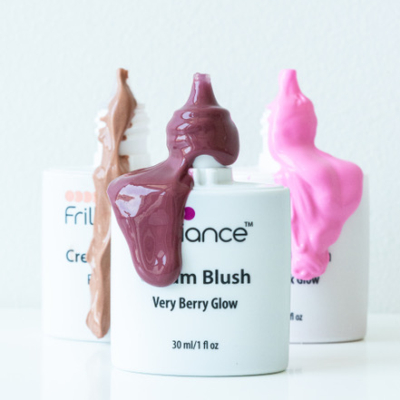

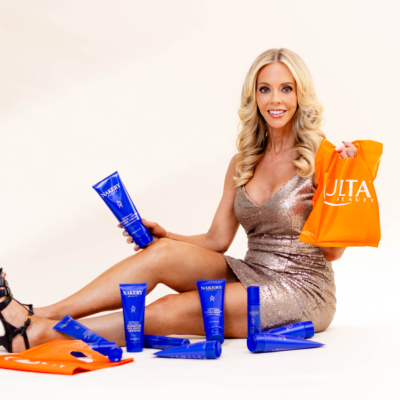
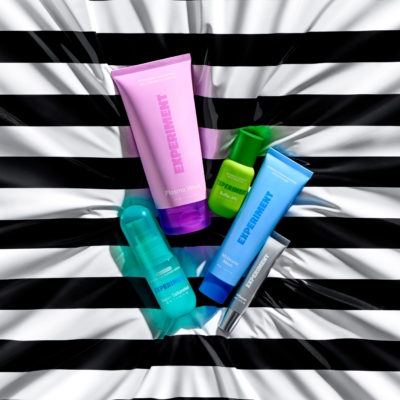
Leave a Reply
You must be logged in to post a comment.